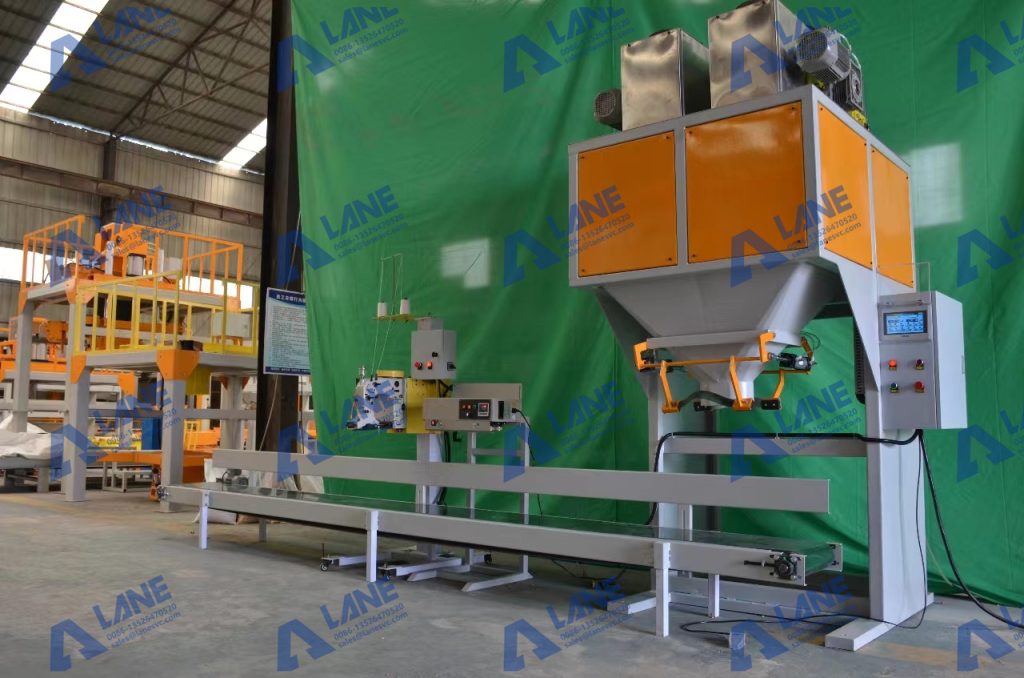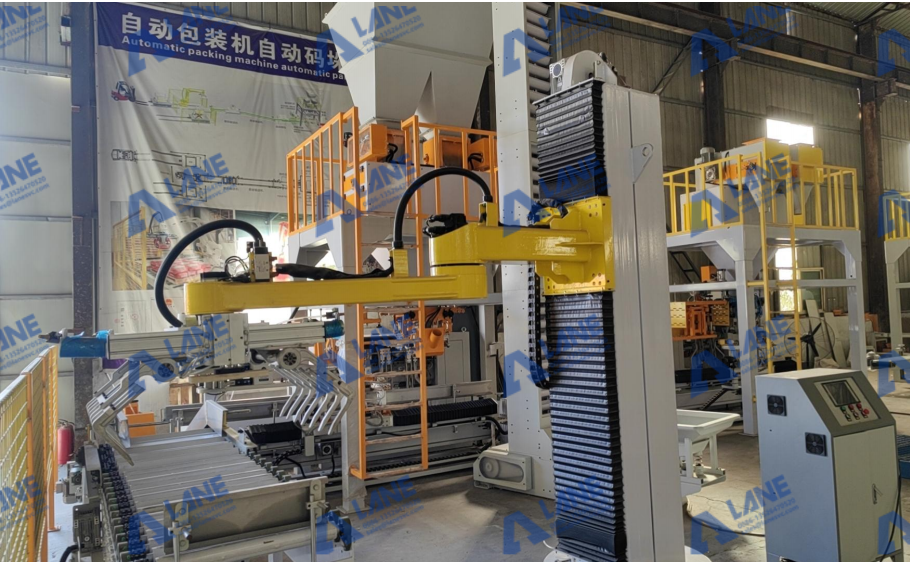Automatic packaging systems for organic fertilizer have become an essential part of modern fertilizer production lines. While composting, granulation, and drying are critical steps, packaging determines how well the final product reaches markets. Without accurate, efficient, and reliable packaging, even high-quality fertilizer cannot compete in today’s agricultural supply chain.
Automatic systems eliminate the errors and inefficiencies of manual bagging, ensuring precise weighing, fast throughput, and consistent sealing. For companies investing in a complete organic fertilizer production line, an advanced packaging system is the final guarantee of professionalism and competitiveness.

Why Automatic Packaging Systems for Organic Fertilizer Are Essential
Accuracy: Prevents underfilling or overfilling, meeting strict commercial standards.
Efficiency: Speeds up the production process, reducing labor costs.
Product Protection: Ensures bags are sealed properly, preventing moisture absorption or leakage.
Marketability: Provides uniform packaging that improves shelf appeal and brand image.
Sustainability: Reduces material waste and enables recyclable packaging solutions.
By integrating automatic packaging systems for organic fertilizer, producers can align with global agricultural supply standards and expand into export markets.
Step-by-Step Workflow in Automatic Packaging Systems for Organic Fertilizer
Step 1: Fertilizer Output Delivery
Granular or powdered organic fertilizer flows from the production line into a buffer silo connected to the packaging machine.
Step 2: Precise Weighing
An electronic weighing system measures fertilizer accurately, ensuring each bag meets the target weight (commonly 25–50 kg). Advanced models include load cell sensors with ±0.2% accuracy.
Step 3: Bag Filling
The system fills fertilizer into pre-made bags or woven sacks using a feeding screw or gravity chute. Dust control measures minimize spillage.
Step 4: Bag Sealing or Stitching
Depending on the bag type, sealing can be achieved via heat sealing, sewing, or valve-bag closing. This step ensures protection against moisture and pests.
Step 5: Labeling and Coding
Automatic printers add batch numbers, production dates, or branding directly onto bags, enhancing traceability.
Step 6: Palletizing and Wrapping
A robotic palletizer or conveyor system stacks finished bags neatly. Stretch wrapping stabilizes pallets for safe storage and transportation.
Core Components of Automatic Packaging Systems for Organic Fertilizer
(1) Weighing System
At the heart of every automatic packaging system is a precise weighing unit. Using load cells and digital controllers, it ensures that each bag contains the exact amount of organic fertilizer. Advanced systems allow real-time calibration to maintain ±0.2% accuracy even when materials vary in flowability.
(2) Filling Mechanism
The filling unit transfers fertilizer from the hopper into the bags. For free-flowing granular fertilizer, gravity feeding is efficient. For powders or sticky compost-based products, screw feeding or belt feeders prevent clogging and ensure smooth flow.
(3) Bagging Unit
This component holds and positions the bags for filling. It supports different packaging types, including PP woven bags, valve bags, and paper bags. Quick-change features make it easy to switch between bag sizes, typically from 10–50 kg.
(4) Sealing and Stitching System
Once filled, the bags must be closed securely. Heat sealing is common for plastic-lined bags to protect against moisture, while heavy-duty stitching machines are used for woven bags. Some systems combine both methods for extra security in long-distance transport.
(5) Optional Automation Modules
To further enhance efficiency, systems can be equipped with robotic palletizers that stack bags neatly, stretch-wrapping units for pallet stability, and automatic labeling systems for traceability. Remote monitoring modules allow managers to track performance and maintenance needs in real time.
LANE’s Advantages in Automatic Packaging Systems
LANE offers integrated automatic packaging systems for organic fertilizer as part of complete production lines.
High Precision: Load cell sensors ensure accurate weighing and stable operation.
Customization: Systems can be tailored for different bag sizes, materials, and throughput requirements.
Durability: Built with stainless steel and anti-corrosive components for long service life.
Energy Efficiency: Optimized design reduces electricity use while maintaining high speed.
Turnkey Solutions: LANE not only provides packaging equipment but also integrates it seamlessly with crushers, granulators, dryers, and screeners.
Global Service: Experienced teams deliver installation, training, and maintenance support worldwide.

Case Example: India’s Poultry Waste Fertilizer Plant
In India, a mid-sized poultry farm expanded into fertilizer production. After installing an organic fertilizer production line, they struggled with inconsistent manual packaging. By adopting LANE’s automatic packaging system for organic fertilizer, the plant achieved accurate 25 kg bags at a speed of 600 bags per hour. This efficiency allowed them to expand distribution to retail networks while reducing labor costs by 40%.
Case Example: Brazil’s Export-Oriented Fertilizer Company
A Brazilian company producing compost-based granular fertilizer invested in an advanced automatic packaging system for organic fertilizer integrated with robotic palletizing. This setup enabled them to export products in 50 kg bags that met international trade standards. The system’s ability to print QR codes on packaging improved traceability, strengthening their competitiveness in European and Asian markets.

Automatic packaging systems for organic fertilizer are the final, crucial link in modern fertilizer production lines. They ensure accuracy, efficiency, and market readiness, helping producers deliver high-quality fertilizer that meets both domestic and international standards.
With advanced technology, customization, and global service, LANE provides complete solutions that enable fertilizer producers to scale their businesses, reduce costs, and meet the rising demand for sustainable agriculture inputs.
For more details, please feel free to contact us.
Henan Lane Heavy Industry Machinery Technology Co., Ltd.
Email: sales@lanesvc.com
Contact number: +86 13526470520
Whatsapp: +86 13526470520